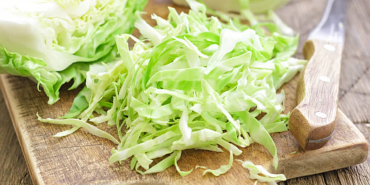Younger Consumers in Kenya Turning Away from Traditional Tea in Favor of Alternatives

Kenya's tea industry, a cornerstone of its economy, is undergoing a significant transformation as it grapples with evolving consumer preferences, intensified global competition, and fluctuating market dynamics.
While tea remains a vital export commodity, its dominance as the preferred beverage among Kenyan consumers is being challenged by a growing appetite for alternative options, particularly among younger generations. Traditionally, tea has been a staple beverage in Kenyan households, second only to water in popularity. However, the rise of ready-to-drink, chilled beverages has eroded tea's market share, presenting a considerable challenge for producers.
Flora Mutahi, CEO of Melvin Marsh International, emphasises the need for adaptation, stating that "tea has been losing its traditional positioning among consumers."
The Kenya Tea Development Agency (KTDA), a major industry player, is responding proactively to these shifts. CEO Wilson Muthaura notes an increasing demand for flavoured and speciality teas, both domestically and internationally. This trend, particularly evident in markets like the United Kingdom, has prompted Kenyan producers to diversify their product offerings. KTDA-managed factories, such as Kanyenyaini and Kiru, have introduced flavoured teas and tea-bag varieties to cater to local tastes. While the agency has historically focused on black CTC (crush, tear, curl) tea, diversification has become a strategic priority.
Value Addition and Premiumization
The transformation extends beyond mere flavour diversification. Consumers are increasingly seeking higher-quality, value-added tea products. Kenya's reputation for producing premium teas has enabled it to command top prices in global markets. To further enhance its market position, KTDA has spearheaded the introduction of black orthodox teas, targeting niche global markets that diverge from conventional CTC exports. Additionally, speciality teas, including green, purple, white, and silver tips, are gaining traction as consumers explore unique flavours.
Functional teas, offering additional nutritional benefits, represent a significant shift in consumer perception. Unlike previous generations who viewed tea as a simple daily ritual, today's consumers seek an enhanced experience. Melvin Marsh International, a pioneer in flavoured tea in Kenya, began with ginger, a familiar ingredient in Kenyan households. This initiative, driven by Mutahi's personal preference, evolved into a national trend, with ginger tea becoming the company's flagship product. The product line has since expanded to include masala, cinnamon, and vanilla varieties.
Innovation and Convenience
Innovation has become essential to maintaining tea's relevance in the face of evolving consumer habits. The COVID-19 pandemic accelerated the shift towards convenience and minimal contact. Melvin Marsh International responded by launching instant tea vending machines and pre-mixed instant tea packets, combining tea, milk, and sugar. These convenient options have resonated particularly well with younger consumers.
Despite these advances, industry leaders recognise the need for extensive market education to drive adoption of new products. Mutahi emphasises that building demand for innovative offerings requires patience and a commitment to educating consumers. Presentation is also crucial, with unique packaging designs playing a role in capturing attention. Melvin Marsh International sources its tea naturally, ensuring that ingredients are grown, milled, and packaged without synthetic additives, catering to the preferences of discerning consumers.
Production and Export Performance
Kenyan tea farmers have consistently increased production over the years, with smallholder farmers under KTDA significantly boosting their output. Between January and October 2024, they harvested 260.6 million kilograms of tea, a 16.03 percent increase compared to the previous year. Large estates recorded a more modest increase of 0.25 percent, producing 118.4 million kilograms during the same period.
Tea exports remain a vital economic driver for Kenya. In the financial year ending June 2024, tea export revenues reached Sh203.71 billion, a 19.52 percent increase from the previous year's earnings of Sh170.43 billion. This growth was fueled by higher export volumes, which rose from 547,690 tonnes in 2023 to 608,296 tonnes in 2024. Key buyers included Pakistan, Europe, the Middle East, and Asian markets.
Challenges and Government Intervention
Despite these gains, tea farmers faced declining earnings due to dropping prices at the Mombasa auction. Between January and April 2024, the average price per kilogram of tea fell to $2.18 (Sh283.4), down from $2.34 (Sh304.2) during the same period the previous year. This decline is attributed to sluggish demand from major buyers such as Pakistan, Egypt, Iran, and Russia, as well as increased competition from other leading tea-producing nations.
To address these challenges, the Kenyan government has implemented several reforms, including minimum price regulations at the Mombasa auction, fertiliser subsidies, increased farmer payments, and incentives for value addition. While speciality teas continue to gain momentum, KTDA is exploring new strategies to expand the industry's footprint beyond traditional export models. Direct-to-consumer sales remain in the early stages, but foreign retail partnerships are being pursued.
Global Branding and Future Prospects
Mutahi stresses the importance of positioning Kenyan tea in the global market. She argues that the country should focus on packaging tea at the source to ensure widespread consumption internationally. With speciality teas gaining prominence and the exploration of new marketing strategies, the future of Kenya's tea industry lies in diversification, premium positioning, and strategic global outreach.














Add new comment